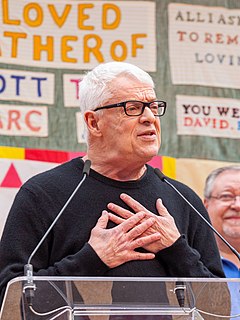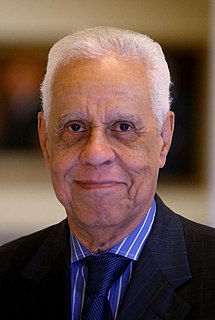A Quote by Jeff Sessions
There was a resistance movement in the white community, and there was a determined civil rights movement by our neighbors and friends in the African-American community. They had right on their side. They conducted themselves in high standards, with courage and determination, and they were victorious. They overcame.
Quote Topics
African
African-American
African-American Community
American
Civil
Civil Rights
Civil Rights Movement
Community
Courage
Courage And Determination
Determination
Determined
Friends
Had
High
High Standards
Movement
Neighbors
Neighbors And Friends
Our
Overcame
Resistance
Right
Rights
Rights Movement
Side
Standards
Themselves
Victorious
Were
White
Related Quotes
In less than a century we experienced great movement. The youth movement! The labor movement! The civil rights movement! The peace movement! The solidarity movement! The women's movement! The disability movement! The disarmament movement! The gay rights movement! The environmental movement! Movement! Transformation! Is there any reason to believe we are done?
When I speak to students about the Civil Rights Movement, I say that it is impossible to stop a determined movement that is captivating the American consciousness. I think the candidacy of Sen. Obama represents the beginning of a new movement in American political history that began in the hearts and minds of the people of this nation. And I want to be on the side of the people, on the side of the spirit of history.
The great social justice changes in our country have happened when people came together, organized, and took direct action. It is this right that sustains and nurtures our democracy today. The civil rights movement, the labor movement, the women's movement, and the equality movement for our LGBT brothers and sisters are all manifestations of these rights.
I go back to the parallels with 1963, 1964 when white America really became aware of the brutality of segregation, the cruelty of the apartheid system which existed in the south. Then white people began to get on the freedom buses and travel to the south and be part of the voter registration drives and they... some of them were beaten and some of them were murdered but they stood with the African-American community and the civil rights movement. It's time for straight people to do that today and it is time for gay people to insist that they do that today.
I think one of the tragedies of the civil rights movement was because the civil rights movement became so court-focused, I think that there was a tendency to lose track of the political and community organizing, and activities on the ground, that are able to put together the actual coalitions of power throughout which you bring about redistributive change. And in some ways, we still suffer from that.
In the South, prior to the Civil Rights movement and the 1964 Civil Rights Act, democracy was the rule. The majority of people were white, and the white majority had little or no respect for any rights which the black minority had relative to property, or even to their own lives. The majority - the mob and occasionally the lynch mob - ruled.
Obama was elected in a flourish of promise that many in the African-American community believed would help not only to symbolize African-American progress since the Civil War and Civil Rights Acts but that his presidency would result in doors opening in the halls of power as had never been seen before by black America.
































